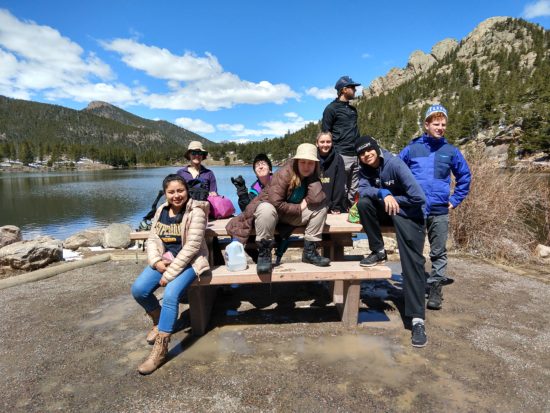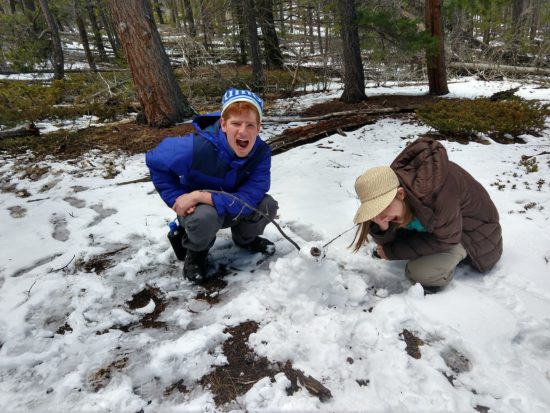
Now like on any good Cottonwood Institute trip, the students learned how to properly pack a backpack. They learned how to hang their food to avoid it being eaten by bears. They engaged in a fierce battle over a one handed bowline knot for self rescue. They set up tents to withstand rain and wind. They washed and sanitized dishes to conform to LNT principles. They learned how to identify a ponderosa pine by its smell and a Douglas-fir by its pine cone. And…they figured out how to come up with the highest point value for their words in an intense word game of Quiddler.
This last educational point was instrumental in meeting the goals many of the students set for their trip. At the beginning of our journey, the students were all asked to come up with a personal goal for the trip, and many of them said they wanted to open up more to the group than they typically do in their daily life as a high school student. These students knew they were going to get all of the usual skills that come with a camping trip, after all, they had signed up for the Community Adventure Program course knowing that would be part of their educational experience. But, they were challenged at the beginning of class to be on their learning edge at some point during the quarter, and for them, personal connection was a place where they had historically struggled.

So, the CAP curriculum not only asks students to learn about plants, work on a service project or two to help the local environment, and keep themselves abreast of current environmental issues. It also asks them to learn how to work as a team, to be personally vulnerable as well as strong, to create safe spaces, and to flex their leadership muscles in a variety of ways. And on days when Colorado (and climate change) gives you snow and freezing temps in April, you engage in an epic five-hour word game during which you create nicknames for your fellow students, “consult the oracle” to ensure you have the best Quiddler word, and open up about what it means to be a human on this crazy, fragile planet of ours.
Written by CAP Instructor Amy Kopkin Atkins
See more photos from the trip here!

Leave a Reply